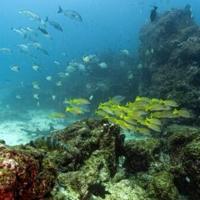The report released on Monday by the Potsdam Institute for Climate Impact Research (PIK) warns that the world’s oceans are on the brink of becoming too acidic to sustain marine life and regulate the climate effectively.
Out of the nine factors crucial for regulating the planet’s ability to sustain life, six have already exceeded safe limits due to human activity in recent years.
Ocean acidification, caused primarily by increased carbon dioxide emissions from burning fossil fuels, is expected to be the next threshold to be breached, according to the PIK’s first Planetary Health Check.
This acidification poses a threat to marine life, damaging corals, shellfish, phytoplankton, and disrupting food supplies for billions of people. It also limits the oceans’ capacity to absorb CO2 and help mitigate global warming.
Despite efforts to improve air quality and ban harmful chemicals, some thresholds, such as fine particle concentrations and ozone layer protection, remain close to danger levels.
The PIK set these planetary danger levels as a warning against pushing Earth’s natural systems past irreversible points, emphasizing the interconnectedness of all nine boundaries.
Addressing one issue, like limiting the rise in global temperature, can have significant benefits across various environmental challenges, the report concluded.





